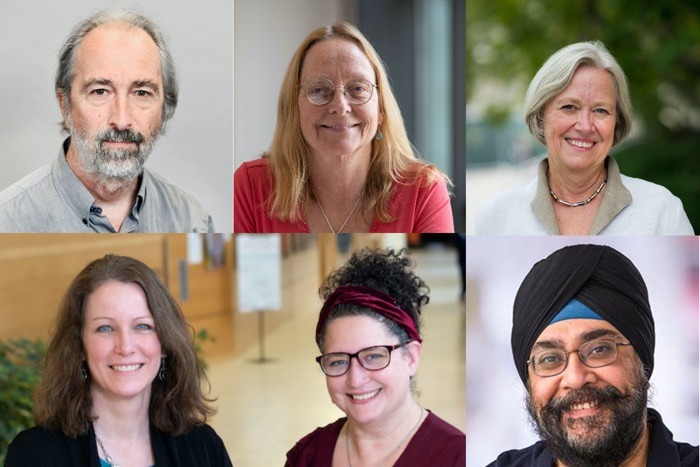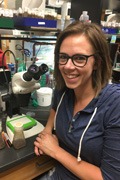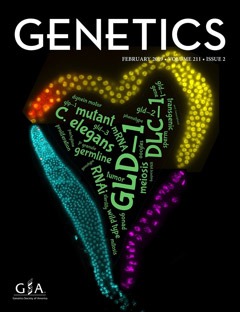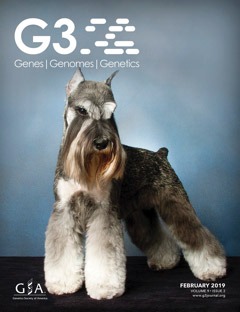GSA Award Seminars
Learn more about the 2022 awardees ≫

Upcoming seminars:
Past Events
2022 Genetics Society of America Medal: Margaret “Minx” Fuller
May 24, 2:00–3:00 p.m. EDT
To divide or to differentiate: Cell state switches in an adult stem cell lineage
Adult stem cell lineages underlie most of the tissues in our body. Correct regulation of self-renewal, proliferation, and differentiation into the proper downstream cell fate(s) is critical for tissue maintenance and repair, with defects contributing to tissue dismorphogenesis, aging, and cancer. I will be discussing our work on the regulation of proliferation and differentiation in the Drosophila male germ line adult stem cell lineage and the surprising contributions of cell type specific alternative mRNA processing to cell state changes.
2022 George W. Beadle Award: Shirley Tilghman
May 19, 1:00–2:00 p.m. EDT
A crisis is a terrible thing to waste: Lessons for science from the global pandemic
The SARS-CoV-2 global pandemic has caused many to reconsider their priorities and policies. Scientists are no exception, and in this seminar I will explore ways in which our profession might evolve in light on the challenges we have encountered over the last two years.
2022 Edward Novitski Prize: Harmit Malik
May 17, 2:00–3:00 p.m. EDT
Causes and consequences of meiotic drive
Larry Sandler and Ed Novitski first defined meiotic drive as a profound evolutionary force in natural populations. My talk will focus on our work on different mechanisms of meiotic drive in male and female meiosis, and how these conflicts profoundly shape centromere and chromatin packaging proteins, using Drosophila as a model system.
2022 Thomas Hunt Morgan Medal: Michael Lynch
May 12, 1:00–2:00 p.m. EDT
Mutation, drift, and the origin of cellular features
Although natural selection is a pervasive evolutionary force, it is not all powerful. The paths open vs. closed to evolutionary exploitation are dictated by the population-genetic environment, which varies substantially among phylogenetic lineages.
2022 Elizabeth W. Jones Award for Excellence in Education: Dara Ruiz-Whalen
May 9, 2:00–3:00 p.m. EDT
Empowering Collaborations: Laboratory opportunities for scientists and educators
Through theory grounded in education and social sciences, we are able to highlight aspects of science communication that open avenues for meaningful experiences for both scientists and science educators. These affiliations are designed to launch exciting classroom projects and enhance student entry into the STEM research pipeline.
2022 Elizabeth W. Jones Award for Excellence in Education: Alana O’Reilly
May 10, 2:00–3:00 p.m. EDT
Nurture, don’t weed: Broadening scientific impact through cultural infusion
Scientific training operates on a hierarchy paradigm, with presumably naive trainees selected via an aggressive, sequential weed-out process conducted by advanced scientific leaders. Unsurprisingly, this process rapidly eliminates trainees from underprepared backgrounds, despite their high potential for innovative, creative discovery. Our work challenges the hierarchy paradigm, instead putting project leadership directly in the hands of those naive trainees, encouraging them to embrace their identity, leverage their cultural and life experiences, and integrate these key social and societal factors into development of novel research. Spoiler: it works!
2021 Thomas Hunt Morgan Medal: Ruth Lehmann
Wednesday, April 28, 1-2 p.m. EDT
Germ cells are forever
Germ cells are the only cells in our body destined to generate a completely new organism. I will be discussing how primordial germ cells are set aside from other cells in the body to fulfill their unique function in reproduction and how we have started to probe the quality control mechanisms that regulate the faithful transmission of cytoplasmic structures including mitochondria from the egg to the embryo.
2021 George W. Beadle Award: Chao-ting Wu
Thursday, April 29, 1-2 p.m. EDT
From Transvection and Pairing to Ultraconservation and Amazon Prime
More than ever before, the implications of our work in genetics are felt in the communities we serve. This presentation will trace one such journey from transvection and pairing to ultraconservation and then Amazon Prime.
Elizabeth W. Jones Award for Excellence in Education: Edward J. Smith
Wednesday, May 5, 1-2 p.m. EDT
Culturally Aware Research Education: Pay Attention to the Differences.
What if we bring our hypothesis-testing, resource-development approach as scientists to our research-training efforts? 87 PhDs to-date help us provide some answers at Virginia Tech to this important question. They also provide a community-based approach to diversifying the biomedical workforce beyond the boundaries of one’s lab, department, interdisciplinary program, college, and university.
GSA Medal: Douglas Koshland
Tuesday, May 11, 2–3 p.m. EDT
Genetics of chromosome biology: to null or not to null
A holy grail of genetic studies of biological processes is to isolate and characterize null alleles of relevant genes. In this lecture I will provide past and present examples of the critical importance of alternative alleles in elucidating important features of chromosome biology and to inform on the future of genetics in the CRISPR-dominated world.
Edward Novitski Prize: Feng Zhang
Wednesday, May 26, 12-1 p.m. EDT
RNA-Guided DNA Insertion with CRISPR-Associated Transposases
Over the past few years, there has been a growing appreciation for the natural diversity of CRISPR-Cas systems, adaptive immune systems microbes use to defend against invading foreign genetic elements. Components of CRISPR-Cas systems have also been found to be associated with transposable elements, creating programmable jumping genes. We have been working to characterize CRISPR-associated transposon (CAST) systems and understand the mechanism of these fascinating molecular machines.



